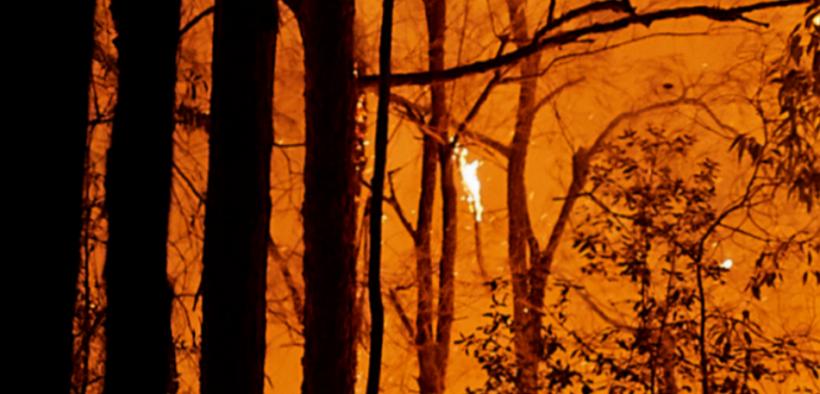A plan to fireproof Australia and avoid bushfires becoming deadly
Share

An ambitious plan to fireproof Australia and ensure the level of death and destruction caused by the 2019-20 Black Summer bushfires is not repeated has been unveiled in Canberra.
Minderoo Foundation, alongside a coalition of experts, corporate partners, emergency services, government agencies and philanthropies, launched the country’s “bushfire moon shot”.
Officially known as the Fire Shield Mission, the project aims to reduce the scale and impact of bushfires by finding new methods to detect, monitor and extinguish dangerous blazes within an hour, anywhere in Australia, by 2025.
The partners on the project include a who’s who of the science, technology, and corporate worlds – including six of the ASX’s top-10 companies by market capitalisation as of 14 September.
The CEO of Minderoo Foundation’s Fire and Flood Resilience initiative, Adrian Turner, said Fire Shield had the potential to be Australia’s very own Apollo Mission and deliver generational change benefitting all Australians.
“In 1962 President John F. Kennedy dared Americans to dream of a man stepping foot on the moon. JFK boldly set a task to go where no-one had gone before. But they made it happen, “ Adrian said. JFK set the target of a decade – we’re setting a target of less than five years to deliver generational change.
“We’ve studied the system breaks across fire, landscapes and communities and believe that
when they’re resolved the outcome will be generational change, lifting Australia to be the world’s
fire and flood resilience leader by 2025,” he said,
Rapid, exponential advancements in technology meant bushfires no longer needed to become disasters, Turn said.
“Throughout history, communities have been at the mercy of the elements. It is time for us to harness the power of people, technology and data to fight back,” he said. “Most people will be surprised to learn that in some regions we still rely on centuries old practices such as people perched in fire towers to detect bushfires. In fact, 95 per cent of fires are detected through triple-zero phone calls. We are determined to radically change the way we predict, detect, monitor and respond to fire, in collaboration with communities, government agencies and emergency services”.
The Fire Shield Mission applies a strong evidence base, and first order problem solving principles, to accelerate the use of technologies such as automated monitoring cameras, drones, satellite technology, remote sensing and machine learning to rapidly detect and respond to bushfires.
“We know that every minute saved in detecting a fire improves the effectiveness of the response and reduces the fire’s destructive potential – so there is huge opportunity to apply new technologies to this challenge,” Turner said.
Fire Shield is the first mission to be announced that is informed by the Minderoo Foundation Fire and Flood Resilience Blueprint, the document that maps a path for Australia to become the global leader in fire and flood disaster resilience by 2025.
Minister for Industry, Science and Technology Karen Andrews said: “This important work has the potential to be a genuine game-changer for Australia. It highlights the power of collaboration and what can be achieved through a bold vision.”
“The work of the Minderoo Foundation and its partners will help Australia be more resilient after
our Black Summer of bushfires,” she said.
Minderoo Foundation has worked with more than 50 partners across the community, emergency services, industry, federal government, philanthropy, and research sectors to co-create and commence implementation of the Fire and Flood Resilience Initiative Blueprint.
Turner said Australia must seize the opportunity to invest in change and share solutions with the world.
“In the past two decades, natural disasters have wrought havoc on Australian communities – killing people, wildlife and farm animals, devastating millions of hectares of our forests and bushland, wiping out farms and homes, and causing more than $120 billion in damage,” he said.
The impacts of climate change will only make this worse. Turner said unless we act now, fires and floods increasing in scale, frequency and severity will cost up to $33 billion per year by 2030 and $39 billion per year by 2050.
“We know that every $1 spent on resilience saves up to $11 in response and recovery costs but Australia continues to spend 10 times more on recovery than resilience. It is critical that we reverse this,” he said.
As the Royal Commission into National Natural Disaster Arrangements observed in its interim report, a national and collaborative approach is critical to building Australia’s resilience to natural disasters.
The National Coordinator of the National Bushfire Recovery Agency, Andrew Colvin, said: “It is great to see such collaboration amongst the broad range of partners working with Minderoo Foundation on its Blueprint and missions.”
“No one sector of society can build a resilient Australia, but if we’re all working together, we have a chance to greatly enhance Australia’s ability to respond to and recover from devastating bushfires,” he said.
Pearl Dy is a community manager and journalist. She is passionate about business and development particularly involving not-for-profits, charity and social entrepreneurship.

















